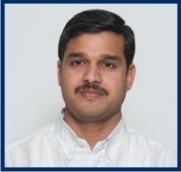Week 1: Basics of Structural Dynamics Module 1: Introduction of Structural Dynamics
Module 2: Differential Equations in Civil Engineering
Module 3: Types of Analysis/Static and Dynamic load
Module 4: Degrees of Freedom (Ex: Generation of Stiffness matrix)
Module 5: Dynamic Equilibrium Equation
Module 6: Solution of Equilibrium Equation
Week 2: Free Vibration of SDOF
Module 1: Undamped free Vibration
Module 2: Solution, Natural Period/Frequency
Module 3: Energy in Free Vibration
Module 4: Damped Free Vibration
Module 5: Types of damping
Module 6: Logarithmic decrement equation
Week 3: Forced Vibration of SDOF
Module 1: Undamped Forced vibration
Module 2: Amplitude & Phase Angle
Module 3: Dynamic amplification factor for deflection (Rd)
Module 4: Damped Forced vibration
Module 5: Relationship between Rd, Rv and Ra
Week 4: Force Transmission, Vibration Measurement
Module 1: Resonant frequency and Half power band width
Module 2: Force Transmission and Isolation
Module 3: Design of Vibration Measuring Instruments
Week 5: Response to Arbitrary Motions
Module 1: Response to Unit Impulse
Module 2: Response to Arbitrary Force (Duhamel's Integral)
Module 3: Response to Step and Ramp Forces
Module 4: Response to Rectangular Pulse, Half Sinusoidal wave
Week 6: Numerical Methods of Solution
Module 1: Time Stepping Methods
Module 2: Central Difference Method
Module 3: Newmark's Method
Week 7: Response Spectrum
Module 1: Concept of Response Spectrum
Module 2: Uses of Response Spectrum
Module 3: Special Cases in Spectrum
Module 4: Development of Tripartite Plot
Module 5: Example: Base Shear and Base Moment
Module 6: Response of Structure in Frequency Domain
Week 8: Multi-Degree of Freedom Systems
Module 1: Equation of Motion for MDOF System
Module 2: Solution of Equation, Natural Frequencies and mode Shapes (60)
Module 3: Modal Orthogonality
Module 4: Approximate Method for finding Natural frequency
Week 9: Earthquake Response of MDOF Systems
Module 1: Time History Analysis
Module 2: Response Spectrum Analysis
Module 3: 3D Dynamic Analysis
Week 10: Dynamic Response of Continuous Systems
Module 1: Vibration of Continuous systems
Module 2: Shear behavior and bending behavior
Module 3: Generalized SDOF
Week 11: Dynamics of Rigid Blocks
Module 1: Dynamics of Rigid Blocks
Module 2: Non Structural Elements
Module 3: Floor Response Spectrum
Week 12: Vibration Control
Module 1: Introduction to Vibration Control
Module 2: Active Control
Module 3: Passive Control
Module 4: Design of Tuned Mass Damper

DOWNLOAD APP
FOLLOW US